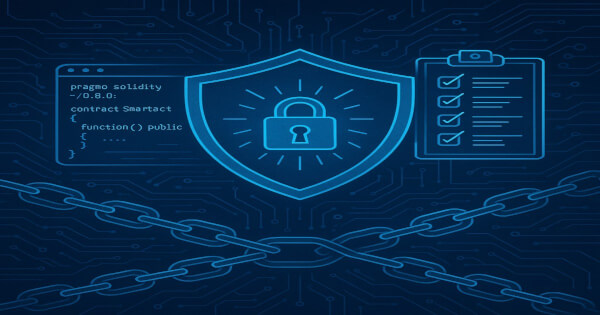Smart Contract Security and Hacks: The Rising Importance of Safe DeFi
Khushi V Rangdhol Oct 03, 2025 10:40
Smart contract security is critical in DeFi, with $3.1 billion lost to hacks in early 2025. Rigorous audits and bug bounties are essential to mitigate sophisticated attacks.

Smart contract security remains one of the most urgent concerns in the decentralized finance (DeFi) sector, with billions lost to hacks and exploits each year. In 2025, the importance of rigorous auditing, multi-layered access control, and continuous threat monitoring has reached a new high as attackers become more sophisticated and target an ever-widening range of DeFi protocols.
DeFi Hacks: Costs and Trends
The first half of 2025 saw $3.1 billion in digital assets stolen due to Web3 and DeFi exploits, making it the worst start to a year for blockchain security so far. Smart contract vulnerabilities—especially access-control flaws and logic errors—remain the leading causes of protocol collapses and fund theft. In 2024 alone, over $2 billion was lost across 149 incidents, and since 2021, cumulative damage from the top 100 incidents is estimated at $10.77 billion. Ethereum, Binance Smart Chain (BSC), Polygon, and Arbitrum top the charts for loss amounts and the number of attacked contracts. Most hacks stem from unaudited or only partially audited code; only 20% of targeted protocols were audited, and even then, direct contract exploits accounted for 34.6% of all cases from faulty input validation and verification.
Audits and Bug Bounties: Are They Enough?
Bug bounty platforms have become an essential layer in DeFi security. Immunefi alone protects 330+ projects with $190 billion in total value locked and paid out over $100 million in bug bounties to researchers in 2025. Bounties for critical smart contract vulnerabilities routinely exceed $500,000, and average rewards across all severities sit at $13,000. Despite this, logic bugs remain notoriously hard to detect automatically, leading to persistent risk. Major exploits like PolyNetwork ($611 million stolen), Wormhole ($325 million), KuCoin ($281 million), and Cream Finance ($130 million) happened mostly in unaudited or poorly managed projects, while multisig wallets and cold storage remain underused among DeFi institutions.
Real Incidents and Lessons Learned
The Typus Finance hack in October 2025 exemplifies the ongoing risks—a vulnerability in the custom oracle contract’s access management let attackers drain $3.44 million in SUI, USDC, xBTC, and suiETH. Typus had audits for other components, but the breach occurred in unaudited code, showing that continuous and comprehensive auditing is needed to stay safe. The event underscores the value of using proven implementations (like Chainlink oracles) and not custom code when unnecessary. Developers and DAOs that actively engage with bug bounty programs, regular security reviews, and multi-signature controls find themselves better protected. Off-chain incidents like compromised admin accounts now account for 56.5% of attacks and 80.5% of funds lost, indicating the critical need for strong credential and key management in addition to pure on-chain security.
The Way Forward
Robust smart contract security is a central pillar for sustainable DeFi growth. Protocols must prioritize comprehensive auditing, continuous bug bounty engagement, privileged account protection, and thorough risk assessment. The rise of AI-powered exploits and cross-chain bridges add new complexity, making expert-led reviews and conservatism over custom implementations even more vital to prevent catastrophic losses as DeFi continues to expand.
Sources:halborn.com, sqmagazine.co.uk, halborn.com, coinlaw.io, moroccoworldnews.com
Image source: Shutterstock

.jpg)